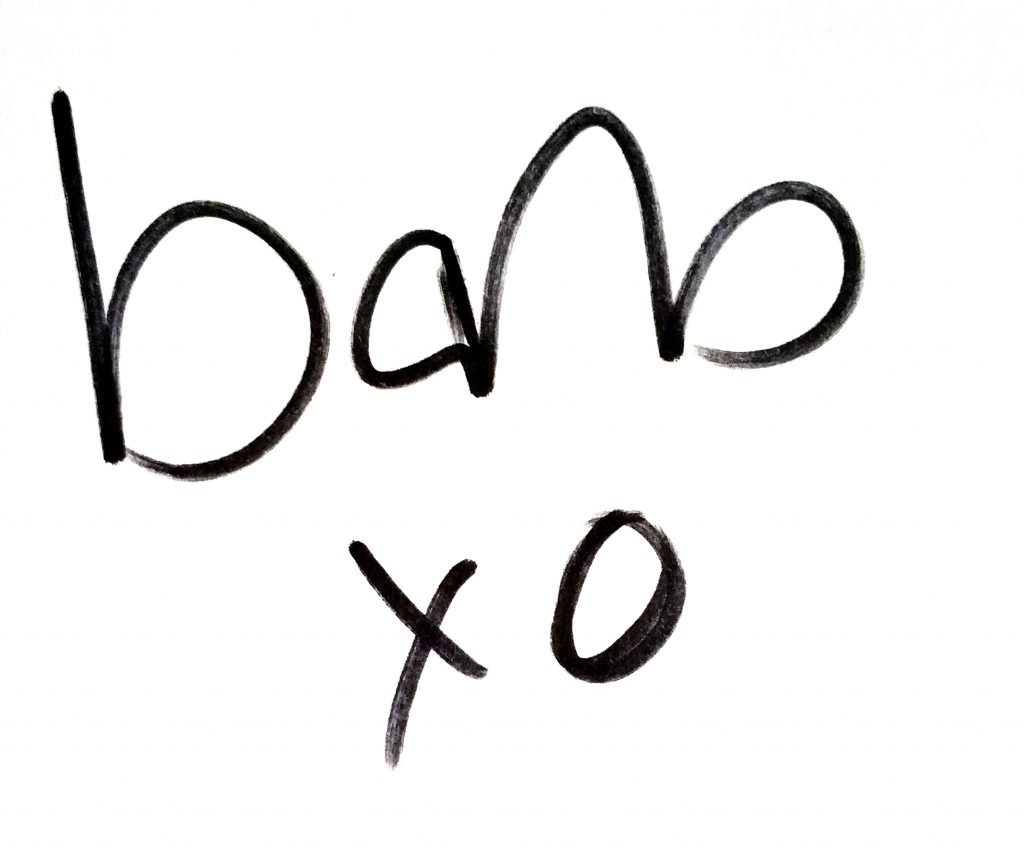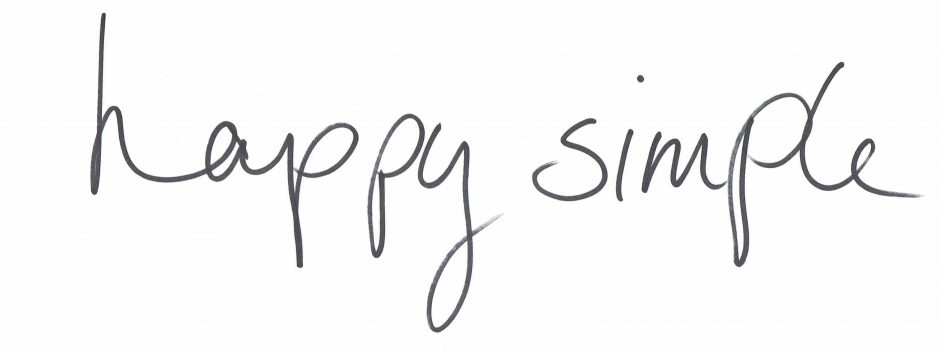I’ve written about minimalism a few times on this blog. It’s something that interests me, a process that I find challenging and rewarding.
I’ve done a fair bit of reading about it, too, and it’s starting to bother me a little. Because so much of it starts and ends with our stuff. The giant purge and reorganizing of stuff, the challenges to buy nothing for 30 days, the number of items you need in your wardrobe and all the handy ways you can mix and match them.
But to my mind, a life that is centred on stuff, whether it’s stuff you have and want to get more of, or stuff you don’t have and never want to have again, is still a life of complication and materialism. It still doesn’t leave you with the precious time and energy for the people and activities that light up your soul.
And I know my early posts about minimalism were, in fact, about the stuff. It’s such an easy place to start because stuff is just so wonderfully tangible. Having time to devote to writing or learning to juggle, a more relaxed relationship with the love of your life or a decreased sense of anxiety are a little more challenging to write about and nearly impossible to post a picture of. But they are the important bits of life, no matter where on the spectrum of minimalism/consumerism you happen to fall.
I’m finding that as I clean up my thoughts, get to know who I really am and honour that person, the consumerism, the need to have and hang on to stuff is disappearing, all on its own. Minimalism, or living an intentional life or whatever you want to call it, begins on the inside and requires the kind of unglamorous, non-Pinterest-worthy work that most of us shop to avoid. If you start with the stuff, chances are huge that you will continue with the stuff. It will be a major purge followed by a binge or just a slow, thoughtless creeping in, followed by another purge and another.
And even if you erect the proper barricades to keep the stuff from creeping back, you will still be dealing with it, thinking about it, editing and curating it. And, honestly? It’s just stuff! The important parts of your life have nothing to do with stuff, are not enhanced by stuff, do not belong to stuff. What’s right or wrong with your life has little to nothing to do with the stuff in it.
Learning this is a slow process, potentially taking an entire lifetime, or at least that’s my experience.
I was noticing changes in my thinking over a decade ago. Alan and I were living in Windsor and were in the process of selling my mother’s house, which required us to leave the house while the real-estate agent took people through. One day, we went to the mall, just to look around and basically kill time, something we had at one time taken great pleasure in doing. But this time I noticed that I didn’t see anything I wanted. I even tried on a sweater because it was classic, well-made and on sale. But I realized that I had enough sweaters, enough clothes, so I put it back.
Then we went into Chapters and had a good look around. And there were only two books that even tempted me. They were both expensive, so I didn’t buy them. And I didn’t want any magazines. So we drank our lattes and chatted.
I still hadn’t totally lost my urge to acquire, but it was way diminished. And it felt kind of weird. I mean, the option of cheering myself up with a shopping spree just wasn’t there any more.
In a weird way, I kind of missed it.
Alan pointed out that it had never really worked, that we spent the entire ‘eighties trying to cheer ourselves up by shopping, accumulated a huge mass of crap and weren’t able to really move forward on anything that truly mattered to us because our time and money were being wasted on other things. And he’s right, but sometimes, even now, with my greater maturity and wisdom, I still miss the illusion of the easy fix. Maturity isn’t always as much fun as we think it’s going to be and wisdom isn’t always a comfort.
But Alan and I started the habit then of heading out to a coffee shop, or a local restaurant or even (more and more these days) our own deck, drinking something tasty and chatting about our day or our dreams for the future.
These moments don’t necessarily fix anything. Sometimes we talk about difficult things and sometimes that doesn’t go well and I wonder why we’re bothering. But sometimes they’re really lovely and I want to hang on to them but I can’t because they’re intangible and I know that in a week or two, they will blur together in my head and be forgotten.
The real work is knowing that and learning to be OK with it, to realize that nothing we can buy or post, no journal entry or photograph will stop the flow of time and keep these sacred wonderful memories present forever. Life washes over us and we have to let go and let it.
If you start with your thinking, minimalism becomes less of a line item on your To Do list and more of a way of actually living this messy, ever-changing life and, pax to my dear friend Douglass, potentially label-free.






As our old friend reminds us, Barb, in a short little poem called Goods:
It’s the immemorial feelings
I like the best: hunger, thirst,
their satisfaction; work-weariness,
earned rest; the falling again
from loneliness to love;
the green growth the mind takes
from the pastures in March…
ps: A pax on you too!
Old friend Wendell Berry, that is…
I will now monopolize your comment system, Barb, but I’ve been drinking hot milky tea — thank you, Auntie Anne, who taught me how to drink tea and appreciate good whiskey — and listening to Marcin Wasilewski all afternoon and I keep coming back to a single word:
Gentle.
Not a label, not a brand, just a way of breathing.
I would talk to my students about the importance of learning how to breathe, how to come back to the breath, because when we breathe, we are doing the two things you describe so eloquently — being there and letting go.
It is the gentlest thing we can do for ourselves, for each other, for the world around us. Breathe gently.
Thank you, Barb, for giving me a gentle afternoon.